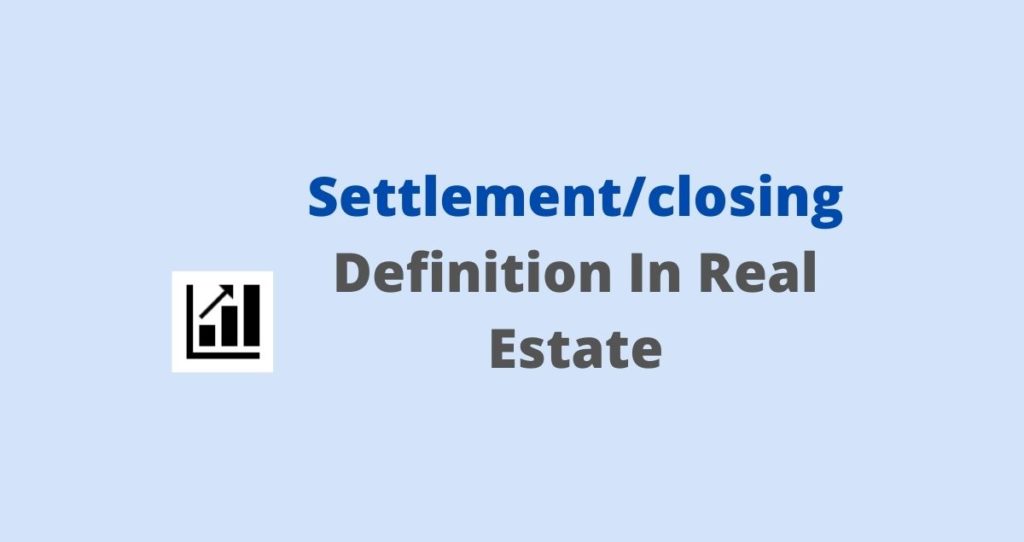What is settlement?
The settlement is a term used when a buyer, seller, and real estate agents (buyer’s agent and seller’s agent) finalize a sale of a real estate property. This term is the same as closing. At the settlement meeting, the seller, buyer, and real estate agents will sign all paperwork. In addition, all fees and charges related to the sale will be paid at the same time.
what should buyers and sellers do before the settlement?
The settlement is the final step of the home buying and selling process. This means that after the settlement both parties will part ways.
To make sure that everything goes as planned and reduces the loss of capital on the sale, both parties (sellers and buyers) must do their due diligence. The following are things that must be done before the settlement.

>>MORE: 74 Things To Look For When Buying A House
1. Perform home inspection
A home inspection is one of the most important steps that must be taken by homebuyers. The inspection will be performed by a licensed home inspector. During the inspections, issues related to plumbing, electrical, structural, and many more will be looked at.
The inspection will save the buyer a lot of money in the near and long term. Never buy a house without performing its proper inspection. The home inspection is not too expensive. As noted by Bankrate, the home inspection will cost between $300 to $450 on average. Depending on the size of the house you are buying, location, and the inspector, you can expect to pay a little more or under the average.
>>MORE: 7 Reasons You Should Get A House Inspection
2. Prepare closing costs before settlement
Besides your down payment, closing costs will be another big upfront expenses you will encounter when buying a house. So, you must put this amount together ahead of time. As noted by Bank of America, the average closing costs range from 3% to 5% of the total mortgage amount.
If you are borrowing $200,000 from your mortgage lender, you should expect to pay $6,000 to $10,000 in closing costs. Closing costs will cover escrow accounts, appraisal, mortgage insurance, origination fees, title, etc.
After the offer has been accepted the buyer must secure the financing option. Without a mortgage or cash to buy the house, the sale will not happen.
If you are financing the house using a mortgage, you will need a mortgage approval letter a.k.a mortgage/loan commitment letter from your lender. Before the lender provides this letter the appraisal and home inspection must be completed. Make sure to give yourself enough time to cover all these steps.
4. Perform pest inspection Before settlement
Homebuyers should consider having pest (termites, rates, etc.) inspection conducted on the house. Sometimes these issues are not easily seen with a naked eye. So, having a professional pest inspector will be a great idea.
According to HomeAdvisor, the home inspection cost around $100. It is not a huge expense compared to the amount you are spending on the house.
5. Renegotiate the price if necessary

If you have a reason to renegotiate the price, you must do so before the settlement date. For example, if the house had problems that the buyer included in contingencies, he/she can bring these issues on the table and renegotiate the price.
6. Remove contingencies (both buyers and sellers)
Depending on the nature of the sale, a buyer or a seller can include contingencies. A contingency is a condition that must be met before a sale is finalized. For example, a seller can use a mortgage contingency. This means that a buyer must secure a mortgage at an agreed-upon date in order for the sale to go through.
Also, a buyer could use contingencies. If the house has problems that were included in contingencies, for example, the price can be renegotiated depending on the nature of the contingency. The renegotiation can result in one of the following:
- The price can be changed based on new findings
- The seller can offer discounts to the buyer
- Issues found can be fixed by the seller before the settlement
- Or the buyer can walk away from the sale
As noted by Home Bay, contingencies must be removed at a specific date in writings.
7. Review paperwork Before the settlement date
There is a lot of paperwork that must be signed by all parties involved in the transaction. Although real estate agents do most of the work, it is important that buyers and sellers review all paperwork. This is the only way both clients will have a solid understanding of the terms and conditions in the contract and ask questions before the settlement date.
18 Mistakes To Avoid When Buying A House
8. Hire a real estate attorney
Although it is not a requirement, having a real estate attorney could be a great idea. The attorney will navigate with you on the process of buying the house and make sure that you comply with all the legal aspects of purchasing a property.
Those who are buying multi-family and commercial properties should always use attorneys on every purchase they make.









